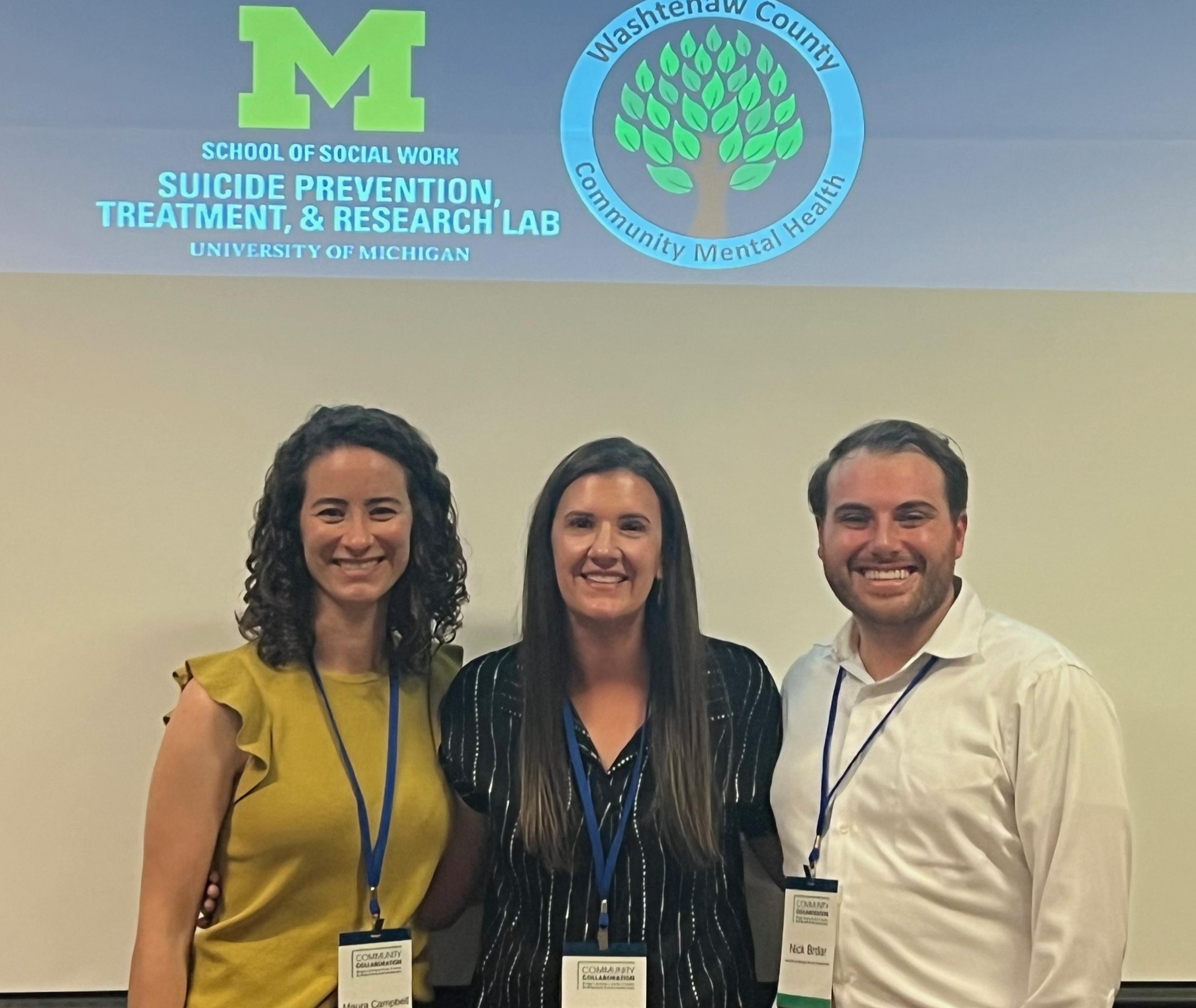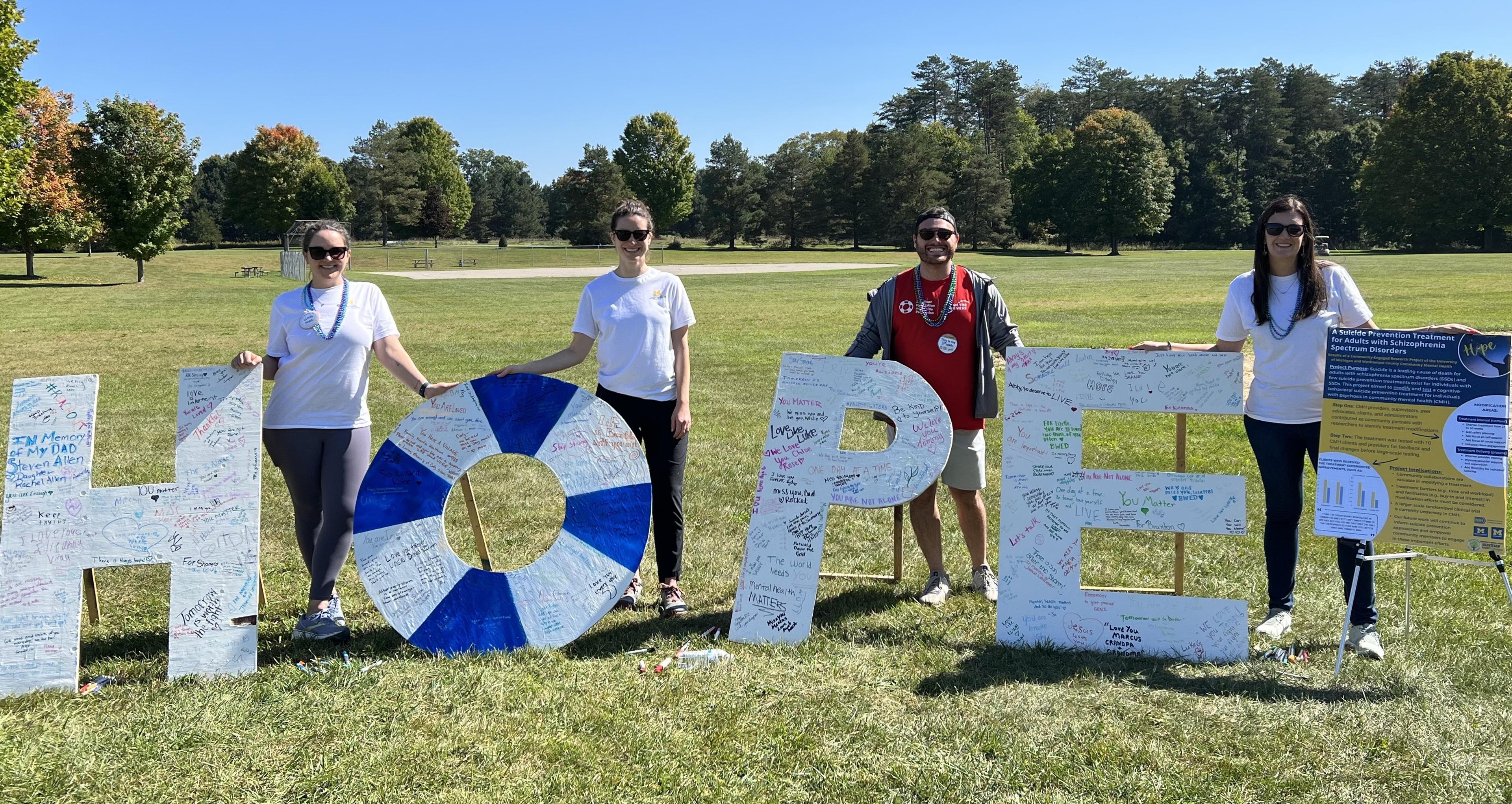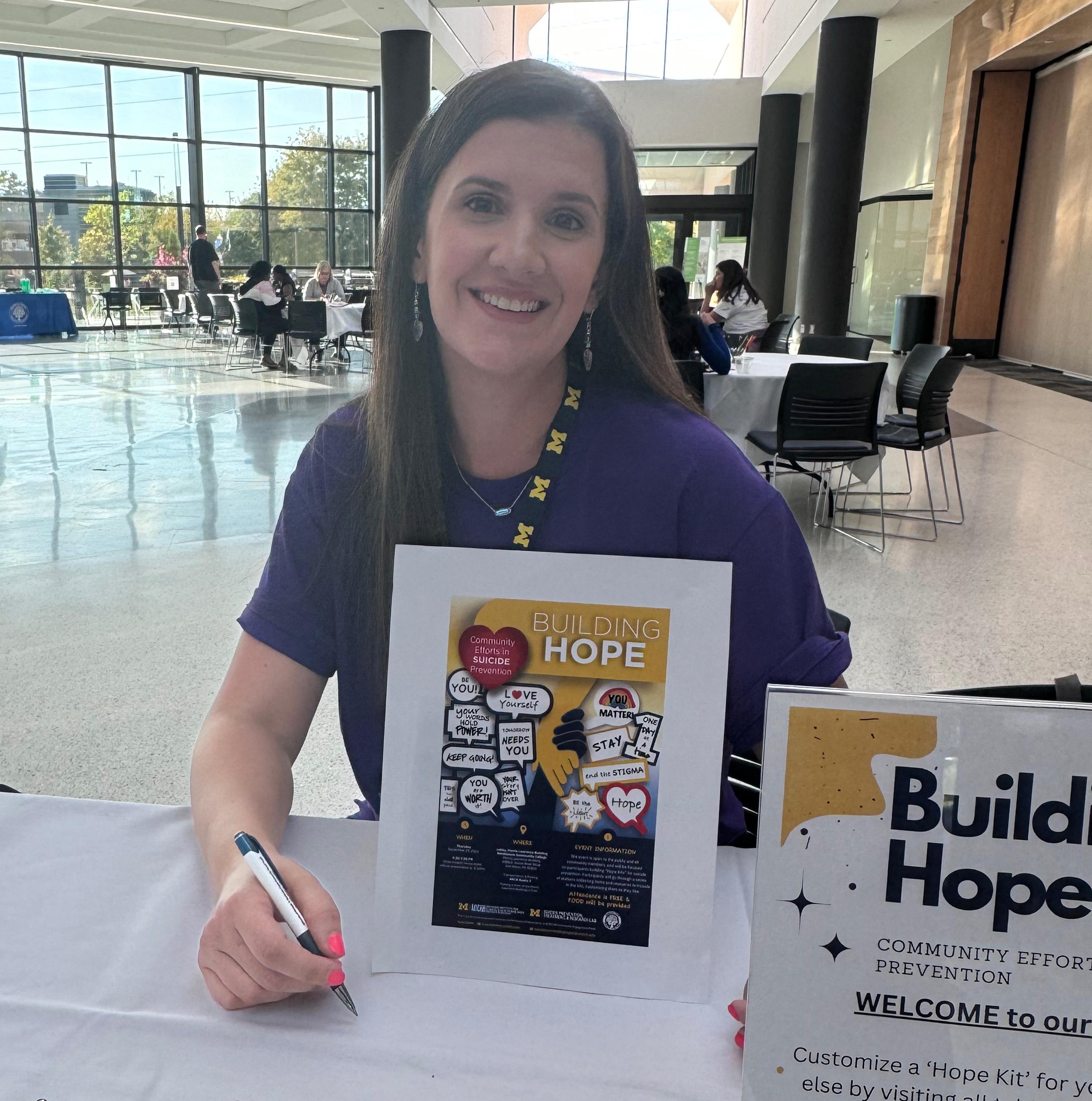Suicide Prevention Lab in the University of Michigan School of Social Work Launches Intervention to Increase Use of the 988 Lifeline and Reduce Suicide Death Among Individuals with Schizophrenia Spectrum Disorders
Jake Newby
| 5 min read

Key Takeaways
- The death by suicide rate is 20 times higher for those with schizophrenia spectrum disorders than people in the general population.
- BCBSM Foundation funds helped the STaR lab at U of M develop a crisis line facilitation intervention to increase use of the 988 Lifeline for individuals who experience psychosis within SSDs.
- The CLF is a 1-hour single-session intervention that involves review of prior suicide crises, 988 resource sharing and discussion of how, when, and why to call.
- Dr. Lindsay Bornheimer and her team in the STaR Lab are optimistic that their version of CLF can help Michiganians during their time of crisis.
Suicide is a major concern for individuals with schizophrenia spectrum disorders (SSDs). The death by suicide rate is 20 times higher for those with SSD than people in the general population.
Dr. Lindsay Bornheimer, an associate professor at the University of Michigan’s (UM) School of Social Work and director of the Suicide prevention, Treatment and Research (STaR) Lab, is working to lower that figure, especially among Michigan residents.
“This is a critical area of concern,” said Bornheimer, who said identifying suicide risk in individuals with SSD is complicated for many reasons. “A lot of what we might think of as classic drivers of (suicide) risk – like depression and hopelessness – are not inherent aspects of SSDs.”

SSDs are mental health disorders that impact the way people think and feel, according to Bornheimer. Psychosis is a primary area of symptoms within SSDs and is characterized by disruption to a person’s thoughts and perceptions to the point where it is challenging to recognize what is real and what is not. Psychosis symptoms can include:
- Delusions
- Disorganized thinking and speech
- Hallucinations
The STaR Lab within the UM School of Social Work is aiming to provide a dependable, potentially lifesaving helpline for individuals with SSDs who are at risk for suicide thoughts and attempt. Bornheimer has found there to be limited interventions aimed at preventing suicide with specific tailoring for psychosis symptoms.

“Some of the issue stems from a challenge in which many suicide-focused studies exclude participants with active psychosis,” she said. “And on the other side, psychosis-focused studies often exclude people with higher areas of suicide risk. So, we’re seeing that this is an area with not a lot of investigation behind it.”
In late 2024, the STaR Lab received a one-year, $48,000 Investigator Initiated Research Program grant from the Blue Cross Blue Shield of Michigan (BCBSM) Foundation to help it launch an intervention to prepare people with SSDs to identify when they are in a suicide crisis and prepare to reach out for help from the 988 Suicide and Crisis Lifeline.
The CLF is a 1-hour single-session intervention that involves review of prior suicide crises, 988 resource sharing and discussion of how, when, and why to call. The session ends with a practice call to 988 for behavioral rehearsal.
Much of the first phase involved engagement with WCCMH stakeholders, including clinicians, peer support specialists, clients, and leadership to learn about how our investigative team could prepare to deliver this tailored intervention to clients with SSDs. Bornheimer said she and her team learned a lot from this recently completed phase, including having clinicians ask about certain psychosis symptoms, to learn more about how they contribute to driving suicide risk.
“For example, some of the providers who were stakeholders in our study shared that many clients often share about their experiences of hearing commands, auditory hallucinations, telling them to kill themselves,” Bornheimer said. “That’s something that is a very different experience from a general approach to suicide prevention, where, let’s say there may not necessarily be a focus on hallucinations contributing to one’s risk for suicide.”

Advancing to phase two: How the STaR Lab hopes its intervention will lead to positive mental health outcomes for people with SSDs
While provider training and screening assessments made up much of phase one, phase two of the program will involve conducting a mass training across Washtenaw County, so clinicians in that area are equipped with the skills necessary to facilitate treatment for individuals with SSD.
Phase two will also be focused on testing the tailored intervention from what was learned in phase one to see if it does in fact contribute to greater use of the 988 Lifeline resource and reduce suicide thoughts and attempt. The recruitment of clients for this evaluation starts in mid-September, according to Bornheimer.

“We will deliver the intervention and test it to see if it is helpful and effective in increasing rates of use of the 988 intervention,” she said. “We will deliver this intervention to approximately 25 clients who have a SSD and are at high risk for suicide. Our hope is that this is helpful for people and that we can scale it across the state of Michigan.”
“We know that Michigan’s death by suicide rate is already higher than the national rate, at about 14.6 deaths per 100,000 people,” said BCBSM Foundation Senior Program Officer, Dr. Melissa Boguslawski. “Given the higher risk of individuals with SSD, the Foundation was eager to work with Bornheimer’s STaR Lab in UM’s School of Social Work to take the model of a crisis line facilitation intervention– which has proven to be successful – and tailor it specifically toward this higher-risk population.”

Bornheimer and her team in the STaR Lab at UM have studied prior literature related to CLF and are familiar with how successful it can be. They are optimistic that their version of CLF can help Michiganians during their time of crisis.
“We’ve found in the past that there are fewer suicide attempts for people who engage in CLF,” she said. “So, our hope is that our modifications tailoring for psychosis can make this intervention more meaningful for people with SSD.”
Click here to learn more about the BCBSM Foundation’s Investigator Initiated Research Program including information about eligibility, the grant application process and past grant recipients.
More Foundation stories:
- ‘Mental Health Crises Don’t Just Operate During the 9-to-5 Window:’ Methodist Children's Home’s Lifesaving Helpline Expands to 24 Hours a Day
- Dutton Farm’s Financial Literacy Program Helps Adults With Developmental Disabilities in Southeast Michigan Gain Financial Independence
- Detroit’s Strategic Community Solutions Combats Caregiver Burnout with Innovative ‘Rest & Recharge + Helping Hands’ Program for Southeast Michigan Caregivers
Photo credit: Lindsay Bornheimer/UM





